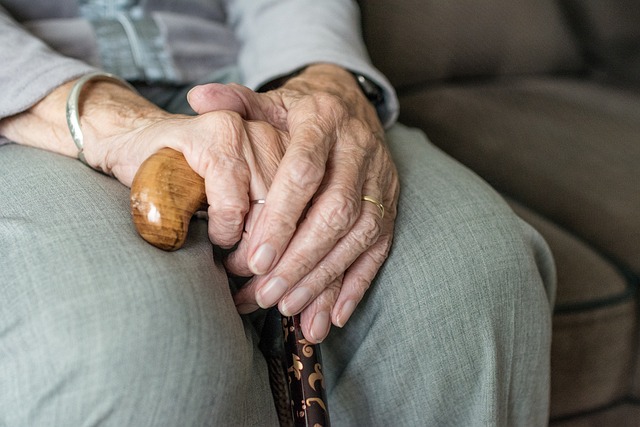Elderly Companion Services are vital in supporting seniors with Alzheimer's Disease, offering personalized care that includes assistance with daily tasks, emotional support, and companionship. These services alleviate caregiver burden, foster dignity, and manage memory, thinking, and behavior changes associated with the disorder. By creating a supportive home environment through routines, consistency, and modifications, companion services ensure independence while prioritizing safety, peace of mind, and cognitive stimulation for those with Alzheimer's and their families.
In the face of Alzheimer’s disease, compassion becomes the cornerstone of care. This pervasive condition, affecting millions globally, presents unique challenges for elderly individuals, demanding a supportive environment that respects their dignity. Our article explores effective strategies to manage this complex illness, with a particular focus on the invaluable role played by Elderly Companion Services. Understanding Alzheimer’s and its impact is the first step; we then delve into how these services provide compassionate care, ensuring quality of life for those affected.
- Understanding Alzheimer's Disease and Its Impact on Elderly Individuals
- The Role of Elderly Companion Services in Providing Compassionate Care
- Strategies for Building a Supportive Environment at Home for Those with Alzheimer's
Understanding Alzheimer's Disease and Its Impact on Elderly Individuals

Alzheimer’s Disease is a progressive neurodegenerative disorder that significantly impacts elderly individuals, affecting their memory, thinking skills, and behavior. As it advances, it can lead to a loss of independence and the need for specialized care. The disease often causes confusion, difficulty in performing daily tasks, and changes in personality or mood, which can be distressing not only for those affected but also for their families and caregivers.
Elderly companion services play a vital role in providing support and enhancing the quality of life for seniors with Alzheimer’s. These services offer personalized assistance, ensuring that the elderly receive compassionate care tailored to their unique needs. Companion services can help with daily activities like dressing, bathing, and meal preparation, while also providing emotional support, companionship, and monitoring of overall well-being. This approach not only eases the burden on caregivers but also fosters a sense of dignity and comfort for those living with Alzheimer’s.
The Role of Elderly Companion Services in Providing Compassionate Care

Elderly Companion Services play a vital role in providing compassionate care for individuals with Alzheimer’s disease. These services offer a unique and personalized approach, ensuring that seniors receive the support they need to maintain their quality of life as much as possible. Companion caregivers are trained to understand the complexities of Alzheimer’s, allowing them to create tailored activities and routines that cater to each patient’s specific needs and preferences. This level of individualized attention can significantly enhance the overall well-being of those living with the disease.
Through these services, companions provide not just physical assistance but also emotional support, engaging in meaningful conversations and activities that stimulate cognitive function and foster a sense of purpose. They assist with daily tasks, encourage independent living, and ensure safety within the home environment. By combining expert care with genuine compassion, Elderly Companion Services create a supportive and comforting atmosphere, making a profound difference in the lives of individuals with Alzheimer’s and their families.
Strategies for Building a Supportive Environment at Home for Those with Alzheimer's

Creating a supportive environment at home for individuals with Alzheimer’s is a compassionate approach that enhances their quality of life. This involves several strategies tailored to cater to their unique needs and challenges. One effective method is establishing routine and consistency, as predictability can provide comfort and reduce anxiety. Simple daily routines, such as consistent meal times and bedtimes, can create a sense of security and normalcy. Additionally, modifying the living space to accommodate any physical limitations and ensuring it is free from potential hazards can make their environment safer and more accessible.
Elderly Companion Services play a vital role in achieving this by providing personalized care tailored to each individual’s needs. These services offer companionship, assistance with daily tasks, and monitoring, allowing for a secure transition into the comfort of home. Customized care plans, coupled with a nurturing mindset, can foster an environment that promotes independence, respects their dignity, and nurtures their cognitive abilities, all while prioritizing safety and peace of mind.
In light of the profound impact Alzheimer’s Disease has on elderly individuals, a multi-faceted approach to care is essential. While understanding the disease and its progression is crucial, it’s equally important to recognize the value of Elderly Companion Services in providing compassionate support. By implementing strategies to create a supportive home environment, we can enhance the quality of life for those affected by Alzheimer’s. The combination of specialized care, companionship, and tailored assistance offered by these services plays a vital role in navigating this challenging journey with dignity and empathy.
